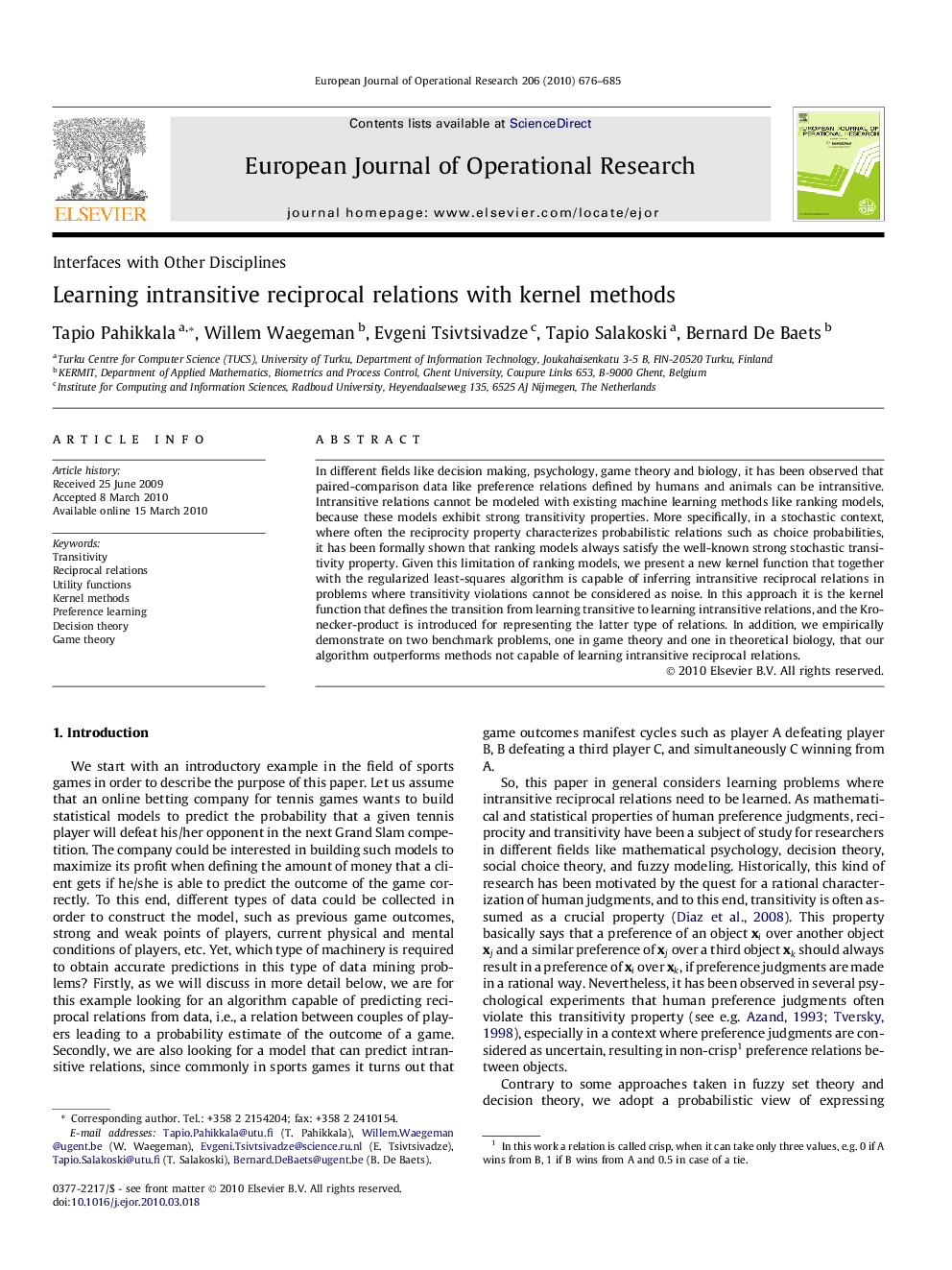| Article ID | Journal | Published Year | Pages | File Type |
|---|---|---|---|---|
| 477105 | European Journal of Operational Research | 2010 | 10 Pages |
In different fields like decision making, psychology, game theory and biology, it has been observed that paired-comparison data like preference relations defined by humans and animals can be intransitive. Intransitive relations cannot be modeled with existing machine learning methods like ranking models, because these models exhibit strong transitivity properties. More specifically, in a stochastic context, where often the reciprocity property characterizes probabilistic relations such as choice probabilities, it has been formally shown that ranking models always satisfy the well-known strong stochastic transitivity property. Given this limitation of ranking models, we present a new kernel function that together with the regularized least-squares algorithm is capable of inferring intransitive reciprocal relations in problems where transitivity violations cannot be considered as noise. In this approach it is the kernel function that defines the transition from learning transitive to learning intransitive relations, and the Kronecker-product is introduced for representing the latter type of relations. In addition, we empirically demonstrate on two benchmark problems, one in game theory and one in theoretical biology, that our algorithm outperforms methods not capable of learning intransitive reciprocal relations.
